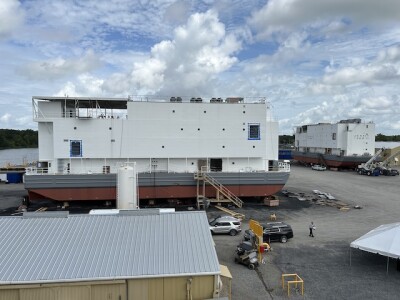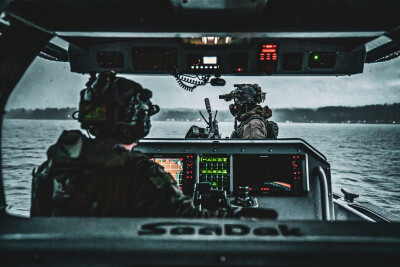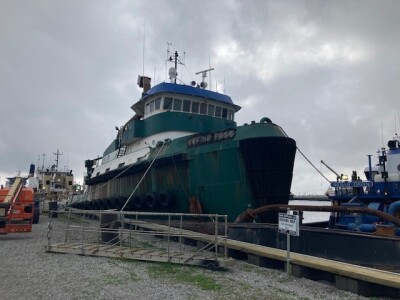The Coast Guard is asking shipbuilders how it might speed up its icebreakers program, and obtain the first new polar vessel by late 2023.
A request for information (RFI) issued Oct. 25 requests “feedback on the notional Heavy Polar Icebreaker acquisition approach and schedule,” the Coast Guard’s early plan toward an eventual fleet of three heavy and three medium icebreakers.
“In the proposed high-level acquisition approach, Government-funded industry studies would be conducted to mature designs, reduce program risk, and receive industry feedback on ways to make the Polar Icebreaker affordable while providing the capability to the fleet as quickly as possible,” the RFI states. Those studies will be followed by a single contract for design and construction of the heavy icebreaker class.
Top Coast Guard leaders have been repeatedly challenged in Congress over the pace of planning to replace Polar Sea and Polar Star, the service’s two 40-year-old heavy icebreakers. With the slow retreat of summer sea ice in the Arctic, there is consensus in Washington, D.C., on the need for new polar ships.
But some in Congress are dissatisfied with the Coast Guard timeline and are urging the use of leased ice ships as a stopgap. The Coast Guard has rejected that idea, saying the civilian ships proposed do not have all the needed capabilities.
In the Coast Guard’s schedule, a formal request for proposals (RFP) for design and build would go out in spring 2018, with the contract awarded to a single U.S. shipyard for the first vessel in the third quarter of fiscal year 2019. Delivery dates for the three heavy icebreakers would be in the fiscal years 2023 and 2025-2026.
To meet those dates, “it is assumed that contractors will utilize mature technology andexisting icebreaker designs to the extent possible,” the RFI states. “While schedule is a major driver, program affordability must remain a constant consideration.”
The Coast Guard is calling for responses to its request by the morning of Nov. 10. Soon following will be an RFP from companies for the government-funded industry studies.
“A draft system specification will be provided as part of the RFP for contractors to use as a basis for multiple trade-off and technical design studies,” according to the Coast Guard. The government’s “indicative design will be provided as general information once the contracts are awarded. It is anticipated that the contractor will conduct specific cost, schedule, capability and technical trade-off studies to support validation and refinement of the Heavy Polar Icebreaker System Specification.”





